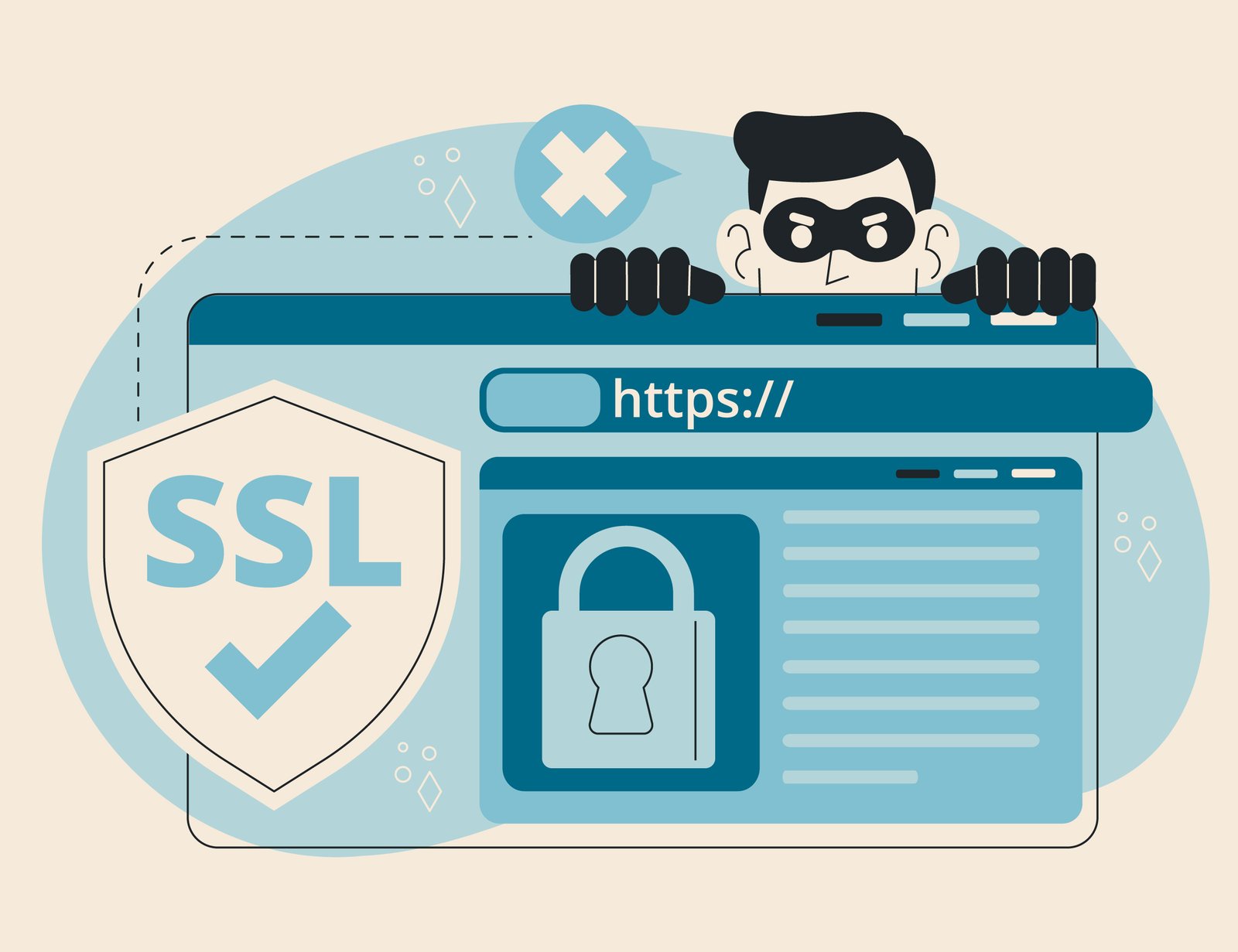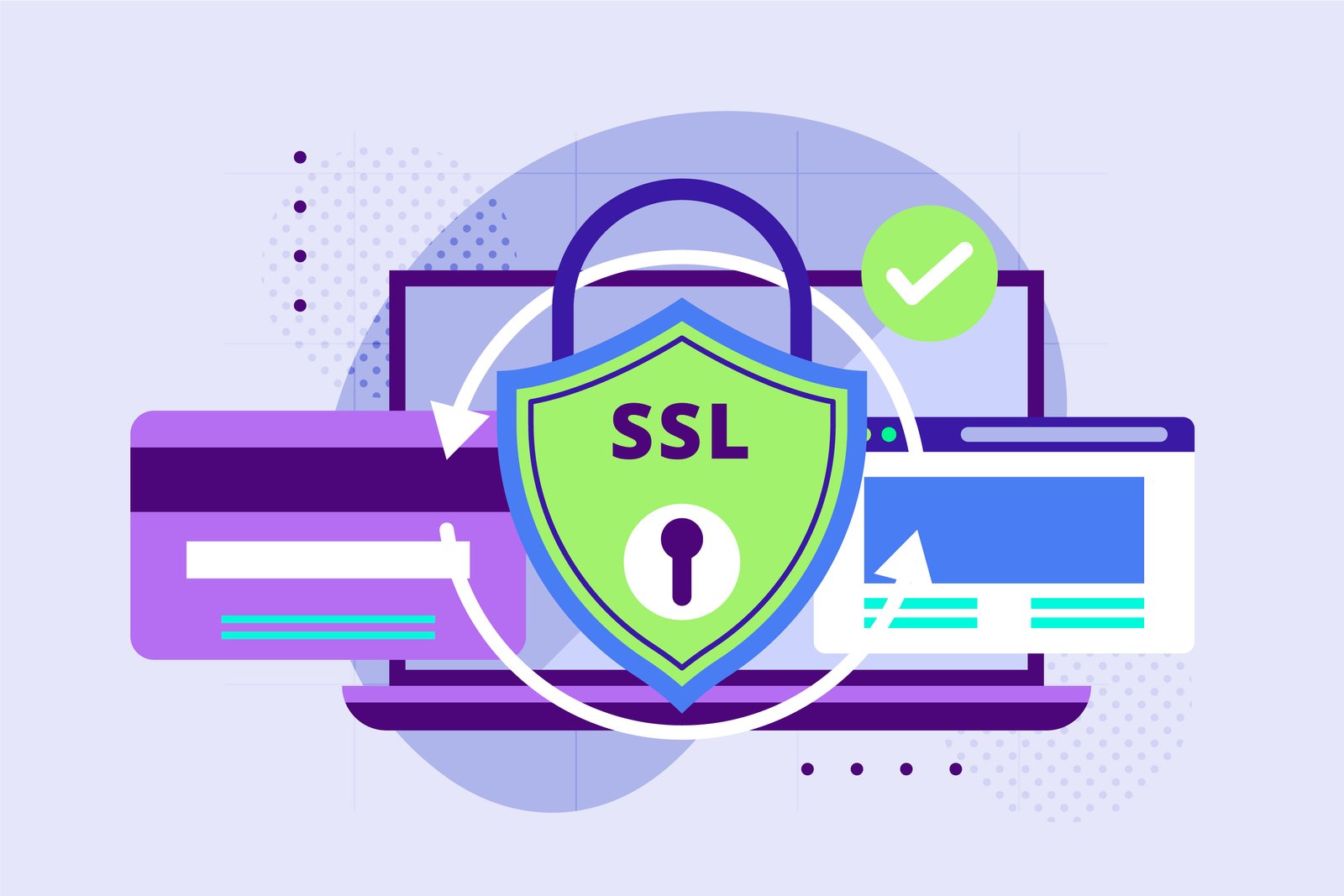Introduction
In today's digital landscape, security is no longer optional - it's a necessity. With cyber threats on the rise, protecting user data and ensuring secure communication between websites and visitors is critical. This is where HTTPS and SSL certificates come into play.
If your website still uses HTTP, you're not only risking security vulnerabilities but also losing out on SEO rankings, user trust, and even compliance with modern web standards. By the end, you'll understand why every website - whether a blog, e-commerce store, or corporate site - needs HTTPS and an SSL certificate.
What Are HTTPS and SSL Certificates?
1. HTTP vs. HTTPS
- 1. HTTP (Hypertext Transfer Protocol): The traditional method of transferring data between a web server and a browser. However, it sends data in plain text, making it vulnerable to interception.
- 2. HTTPS (Hypertext Transfer Protocol Secure): An encrypted version of HTTP. It ensures that all data exchanged between a user's browser and the website is securely encrypted, preventing hackers from stealing sensitive information.
2. What is an SSL Certificate?
An SSL (Secure Sockets Layer) certificate is a digital certificate that authenticates a website's identity and enables an encrypted connection. When installed on a web server, it activates the padlock icon and HTTPS protocol, ensuring secure data transmission.
How SSL Works in Simple Terms:
- 1. A user visits an HTTPS-enabled website.
- 2. The browser requests the web server to identify itself.
- 3. The server sends a copy of its SSL certificate.
- 4. The browser verifies the certificate's authenticity.
- 5. If trusted, the browser and server establish an encrypted connection.
- 6. All data exchanged remains secure.
Why Every Website Needs HTTPS & SSL Certificates
1. Data Security & Encryption
Without HTTPS, sensitive data (login credentials, credit card details, personal information) can be intercepted by hackers through man-in-the-middle (MITM) attacks. SSL encryption ensures that even if data is intercepted, it remains unreadable.
2. Improved SEO Rankings
Google prioritizes HTTPS websites in search rankings. Since 2014, HTTPS has been a ranking signal, and Chrome even marks HTTP sites as "Not Secure", hurting credibility and traffic.
3. Builds Trust with Visitors
A padlock icon and "Secure" label in the browser address bar reassure users that your site is safe. For e-commerce and banking sites, this is critical for customer confidence.
4. Compliance with Privacy Regulations
Laws like GDPR (General Data Protection Regulation) and PCI DSS (Payment Card Industry Data Security Standard) require secure data transmission. Without HTTPS, you risk legal penalties.
5. Prevents Phishing & Cyber Attacks
SSL certificates verify website ownership, making it harder for attackers to create fake versions of your site. Extended Validation (EV) SSL even displays the company name in the address bar.
6. Better Website Performance (HTTP/2 Support)
Modern browsers only support HTTP/2 (a faster protocol) over HTTPS. This means your site can load faster with improved performance.

Types of SSL Certificates
| Type | Best For | Validation Level |
|---|---|---|
| Domain Validated (DV) | Blogs, personal websites | Basic encryption |
| Organization Validated (OV) | Business websites | Validates business details |
| Extended Validation (EV) | E-commerce, banking | Highest trust (green bar) |
| Wildcard SSL | Multiple subdomains (e.g., *.yourdomain.com) | Covers all subdomains |
| Multi-Domain SSL | Securing multiple domains under one certificate | Flexible for businesses |
How to Migrate from HTTP to HTTPS
When selecting a Headless CMS, consider:
- Purchase an SSL Certificate (Many providers like Let's Encrypt, Comodo, DigiCert offer free & paid options).
- Install the Certificate on your web server (via cPanel, Apache, Nginx, or your hosting provider).
- Update Internal Links to use HTTPS (avoid mixed content warnings).
- Set Up 301 Redirects from HTTP to HTTPS to maintain SEO rankings.
- Update Google Analytics & Search Console to track HTTPS traffic.
- Test Your Site using tools like SSL Labs (Qualys) to ensure proper configuration.
Conclusion: HTTPS is a Must, Not an Option
The internet is moving towards a 100% HTTPS future. Whether you run a small blog or a large e-commerce store, enabling HTTPS with an SSL certificate is essential for:
- Protecting user data
- Boosting SEO rankings
- Enhancing trust & credibility
- Meeting compliance standards
- Improving website performance
Don't wait - secure your website today! If you need help migrating to HTTPS, consult a web solutions provider to ensure a smooth transition.






